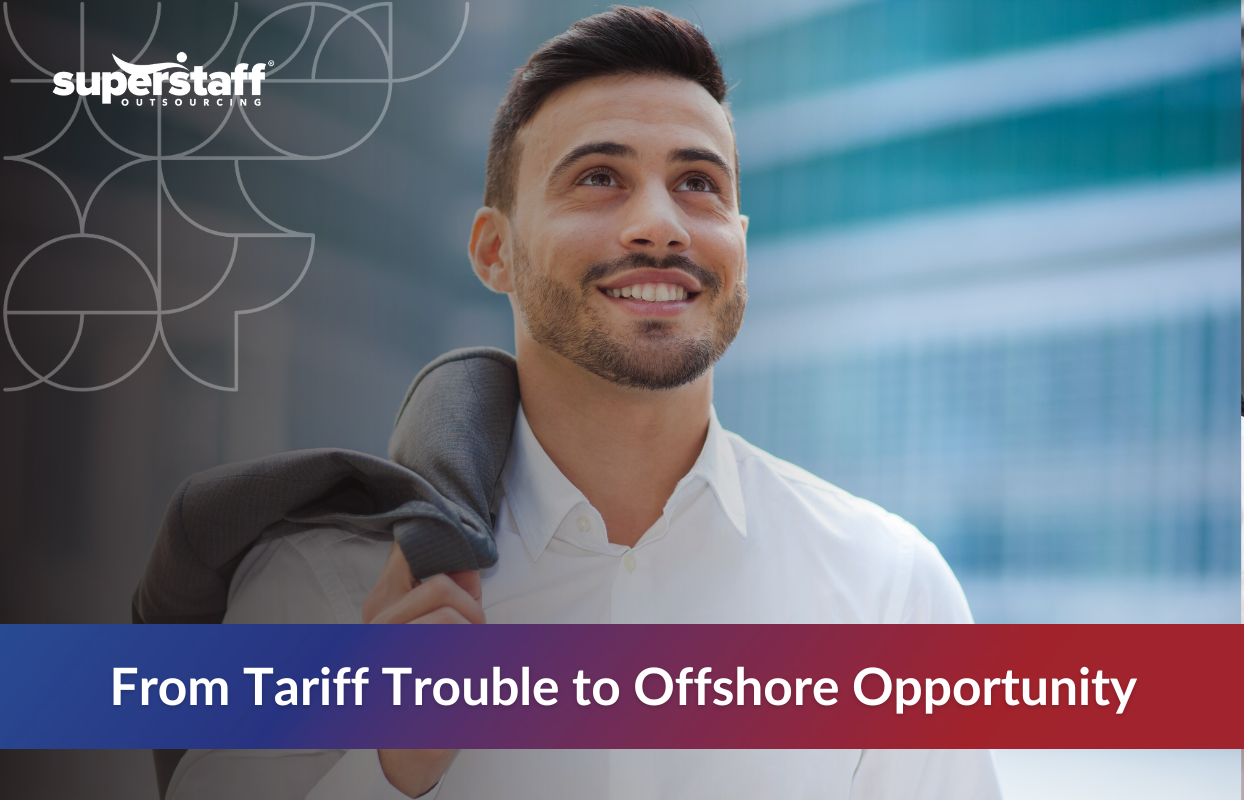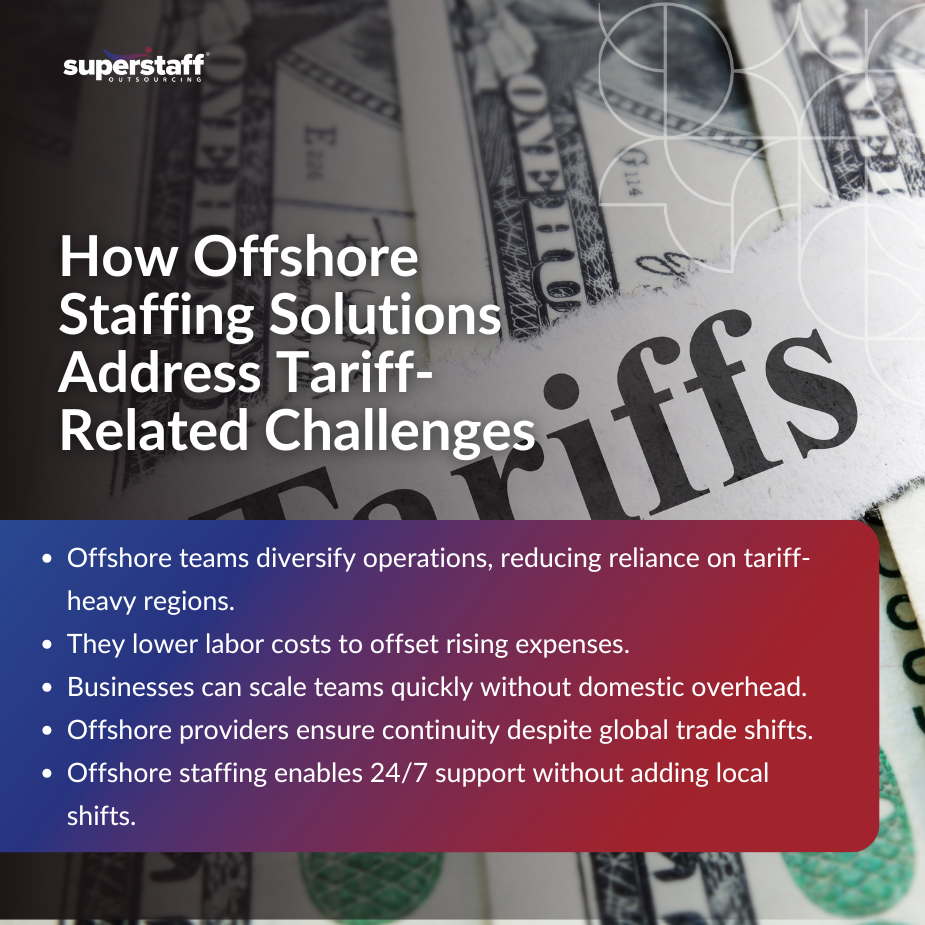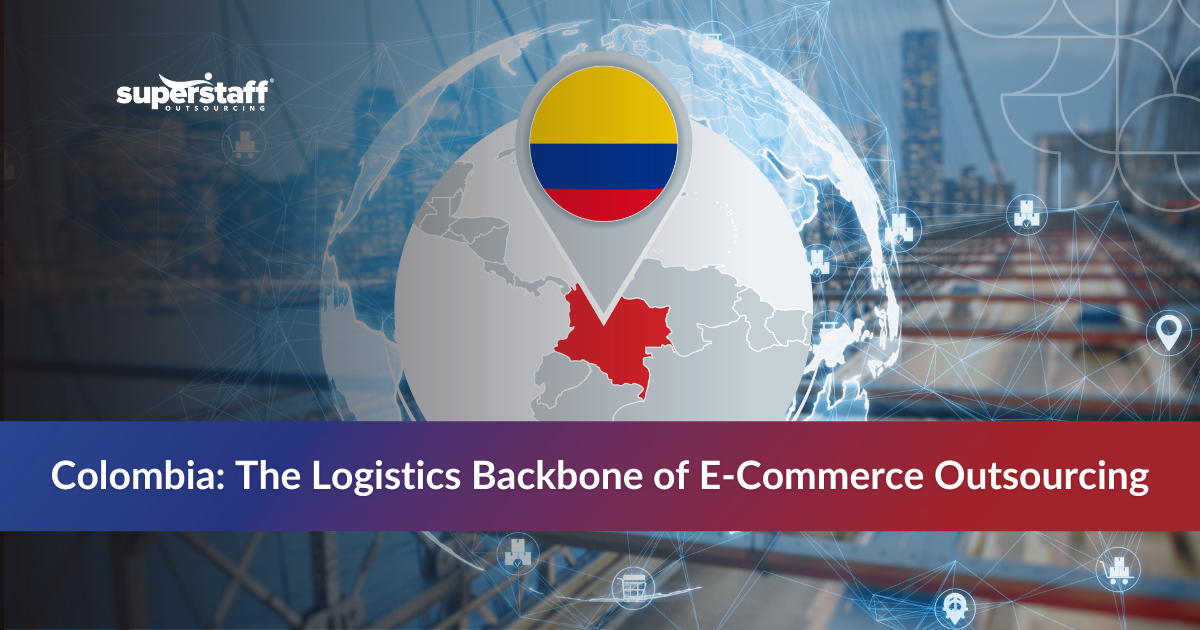
Global businesses are facing a confidence crisis, and much of it stems from the escalating unpredictability of global tariff policies. From the ripple effects of U.S.-China tensions to sudden import duties on raw materials and finished goods, companies are being forced to navigate an increasingly volatile trade landscape. These tariff changes aren’t just political—they’re operational. They impact costs, delay supply chains, complicate procurement strategies, and disrupt long-term planning.
Explore how SuperStaff’s offshore staffing solutions can help your business stay confident and competitive, even in uncertain times. By relocating key roles—such as customer service, IT support, back-office functions, and even finance—to global talent hubs, businesses can protect profit margins, reduce overhead, and stay agile amid policy shifts. Offshoring isn’t just about cutting costs anymore—it’s about reclaiming control in an environment where traditional strategies no longer guarantee stability.
Tariff volatility is triggering a new wave of uncertainty in global trade.
Over the past decade, tariff wars and trade tensions have created an unpredictable environment for international commerce. The U.S.-China trade war alone has led to hundreds of billions of dollars in tariffs, disrupting not only bilateral trade but also entire global supply chains. Similar tensions between the U.S. and Mexico, as well as tariff escalations in the European Union and Southeast Asia, have further complicated global trade routes.
- Cost unpredictability in sourcing and manufacturing: With tariffs imposed on raw materials and key components, companies struggle to maintain predictable cost structures. Profit margins shrink as duties inflate the landed cost of goods.
- Delays in logistics and supply chain recalibrations: New trade barriers require businesses to reconfigure shipping routes, find alternative suppliers, or relocate manufacturing operations—all of which cause delays and raise logistical complexity.
- Loss of investor and stakeholder confidence: Persistent tariff threats discourage investment, stall expansion plans, and shake shareholder trust in a company’s ability to deliver consistent returns.
In response, businesses are reassessing their global strategies, with offshoring emerging as a compelling solution.

How Offshore Staffing Can Protect Business Operations From Tariffs
When tariffs drive up the cost of production, materials, and logistics, the most effective way to restore financial balance is to reduce operational overhead. Offshore staffing solutions provide this leverage. By tapping into skilled, cost-effective labor markets abroad, businesses can shift their focus from merely surviving trade shocks to thriving in spite of them.
- Offshore labor mitigates domestic inflationary pressures: Labor costs in many offshore destinations are significantly lower, enabling companies to maintain service levels while protecting their margins.
- Specific offshore hubs benefit from favorable trade zones: Countries like the Philippines and Colombia often have trade agreements that exempt them from major tariff zones, enabling smoother global transactions.
- Offshore teams offer flexible scaling in response to shifting demand. Offshoring enables companies to scale up or down quickly, aligning workforce size with market demands without the bureaucratic constraints of domestic hiring and layoffs.
Beyond cost control, offshoring also enhances resilience across core and non-core functions.
How Offshore Staffing Solutions Are Helping Manufacturing, Logistics, and Tech Thrive
Companies across sectors are rewriting their playbooks. As tariffs squeeze margins and increase operational risk, many are turning to offshore staffing as a stabilizing force. The offshore workforce benefits go beyond immediate cost savings—they also offer a long-term path toward agility and risk mitigation.
For example, a U.S. electronics firm may face surging costs on imported components. In response, the company can shift its in-house customer experience and IT support operations to the Philippines. This strategic move could not only reduce overhead but also enable the company to maintain around-the-clock service capabilities, ultimately saving millions of dollars annually.
Similarly, logistics companies are streamlining their operations by offshoring billing, compliance, and documentation processes to nearshore partners. This can help them absorb the impact of new tariffs while maintaining precision and turnaround speed.
In the tech sector, SaaS startups are outsourcing DevOps, quality assurance, and other non-core functions to offshore teams. With development costs continuing to rise, this model allows startups to scale without breaking their budgets, ensuring they remain competitive and innovative.
This growing reliance on offshore teams for business resilience is more than just a reactive measure—it is fundamentally reshaping long-term workforce strategies and highlighting the strategic value of offshore partnerships.
Global workforce diversification is becoming a hedge against economic nationalism.
The reemergence of protectionist trade policies has made it clear: relying on one country for talent or operations is a risk. Offshore staffing allows businesses to diversify their human capital portfolio and safeguard operations from future shocks.
- Reduces overreliance on high-tariff regions: Diversifying operations across countries minimizes exposure to any single jurisdiction’s trade policies.
- Encourages agile business continuity planning: A global workforce allows businesses to quickly shift workloads in response to supply chain disruptions, labor shortages, or geopolitical tension.
- Makes operations more adaptive to new trade deals or sanctions: With a distributed team, companies can align resources with favorable policy changes and avoid penalty zones.
But offshoring amid tariff chaos also requires strong partners who understand regulatory landscapes.
The right offshore partner helps businesses stay compliant and future-ready.
Choosing the right offshore partner is just as important as the decision to offshore itself. With expert support, businesses gain more than labor savings—they gain peace of mind, compliance assurance, and the freedom to focus on growth.
- Local legal and tax compliance knowledge: Top BPO providers, like SuperStaff, stay current with local labor laws, tax codes, and international compliance standards.
- Data security and international regulation expertise: From GDPR to HIPAA, experienced partners offer IT infrastructure and staff training that align with global standards.
- Scalable teams that evolve with your needs: The best providers offer customized offshore staffing solutions that can expand or contract as your business demands change.
When business confidence dips, the strength of your partners makes all the difference.
Rebuilding Confidence With SuperStaff’s Offshore Staffing Solutions
In the face of rising global tariffs and eroding confidence, offshoring offers a lifeline, enabling companies to cut costs, manage risk, and sustain operations. Tariff volatility is here to stay, but companies don’t have to be at its mercy.
Tariff volatility continues to erode business certainty across industries, compelling leaders to reassess their operational strategies. Offshore teams help alleviate this pressure by offering cost-effective and flexible solutions that preserve service quality. As businesses seek greater resilience and adaptability, global workforce diversification has become a critical strategy. Moreover, when guided by a reliable partner, the shift to offshoring can be seamless, compliant, and strategically advantageous.
Explore how SuperStaff’s offshore staffing solutions can help your business stay confident and competitive, even in uncertain times. Whether you’re reevaluating your workforce strategy or seeking to establish long-term business resilience, our global teams are prepared to support your objectives. Reach out today to discover how our offshore staffing solutions can support long-term growth, cost-efficiency, and business resilience.






